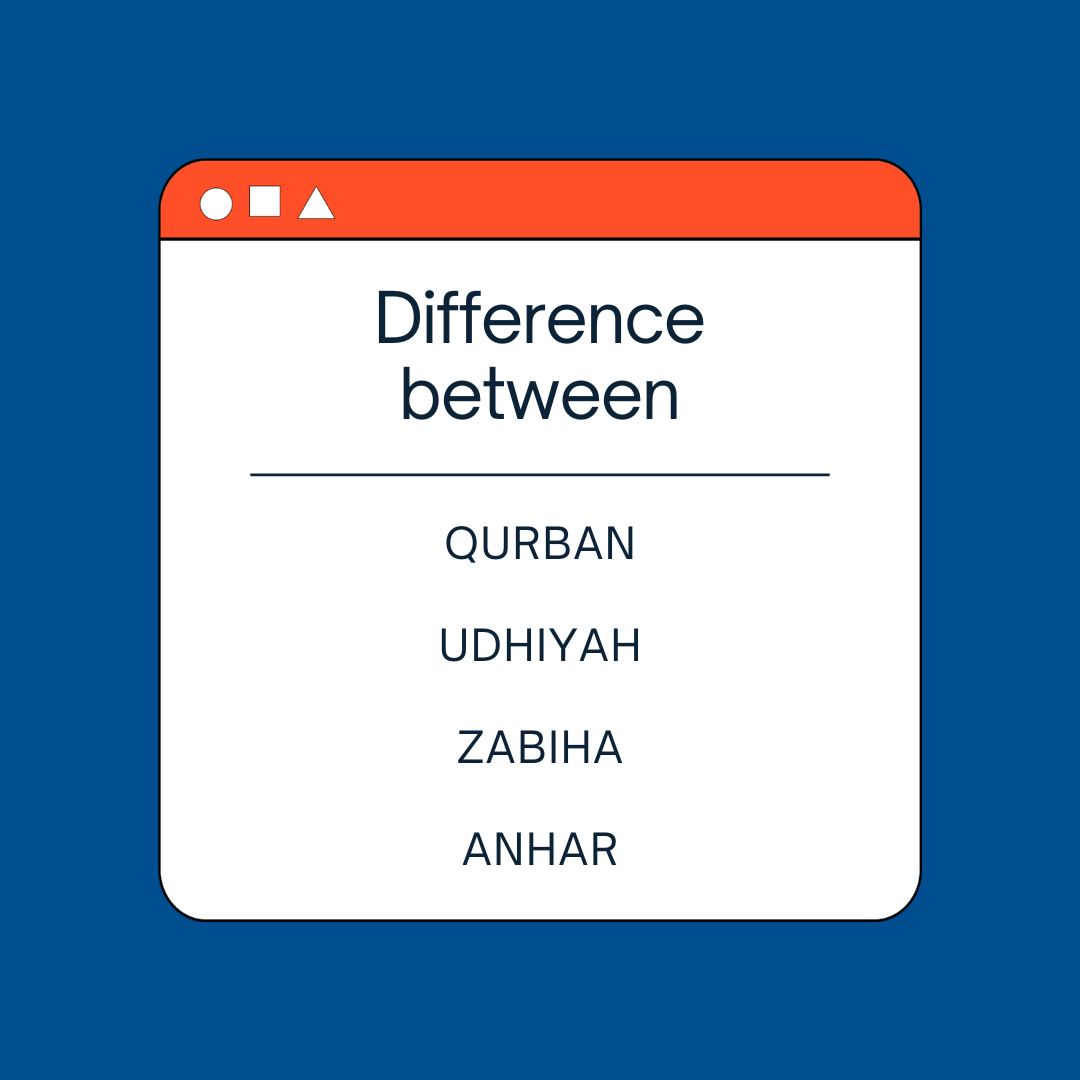The terms
Qurban, Udhiyah, Zabiha, and Wanhar are all related to Islamic practices of sacrifice, but they have different contexts and uses:
Qurban and Udhiyah: These two terms are often used interchangeably and refer to the sacrifice of an animal during Eid al-Adha. This act commemorates the willingness of Prophet Ibrahim (a.s.) to sacrifice his son in
obedience to God’s command, before God provided a ram to sacrifice instead. The meat from the sacrifice is distributed among the poor, relatives, and for personal consumption.
Zabiha: This term refers to the method of slaughtering animals according to Islamic law, which is applicable to all meat consumed by Muslims, not just during Eid al-Adha. It involves a specific set of procedures, including reciting God’s name at the time of
slaughter.
Wanhar: This is derived from the Arabic word “وَانْحَرْ” (wanḥar), which means “and sacrifice.” It is mentioned in the Quran in the context of offering a sacrifice to God. While it is related to the concept of sacrifice, it is specifically used in the religious text to instruct the act of sacrifice in general. It’s part of the verse “فَصَلِّ لِرَبِّكَ وَانْحَرْ” (Fasalli li rabbika wanḥar) Surah Al-Kawthar verse 2, which means "So pray to your Lord
and offer sacrifice [to Him alone]."
In summary, while Qurban, Udhiyah, and Wanhar are associated with the act of sacrifice in Islamic tradition, Zabiha is specifically related to the method of slaughter that makes the meat permissible (halal) for consumption. Wanhar is more of a general term used in the Quranic context, whereas Qurban and Udhiya are specific to the ritual during Eid
al-Adha.
Great! Now you know the difference and in case you haven't placed your order for your Qurban, feel free to check out the packages that we offer this year. Simply press the button below!


